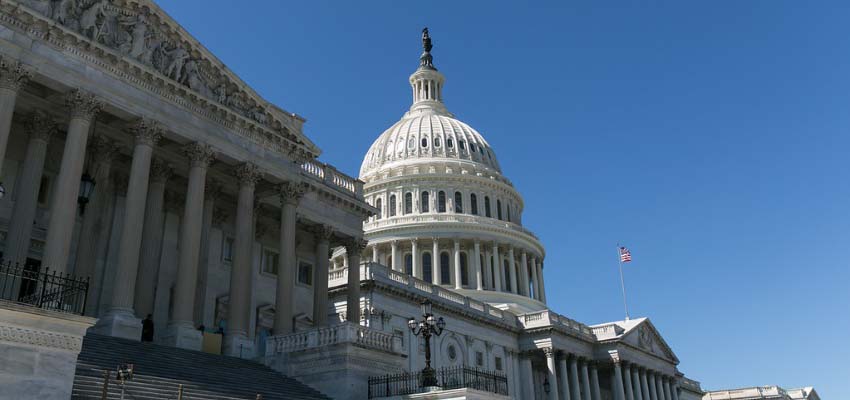Public Affairs Conference to emphasize labor challenges, costs

The conference will focus on three important challenges: passing the Essential Workers for Economic Advancement Act, reinstating the Employee Retention Tax Credit, and preserving the tip credit.
Advocates for the restaurant industry are set to head to Capitol Hill for the National Restaurant Association's Public Affairs Conference, held in person, in Washington, D.C., April 25–27.
The conference, the restaurant industry’s largest grassroots lobbying event, welcomes former U.S. Speaker of the House John Boehner, Sen. Joe Manchin (D-W.VA), and Punchbowl News Founder & CEO Anna Palmer, who will address the current political state of play in their presentations.
The PAFC focuses on three labor-related challenges currently affecting the restaurant industry:
- Passing the Essential Workers for Economic Advancement Act
- Reinstating the Employee Retention Tax Credit
- Preserving the Tip Credit
Sean Kennedy, the Association’s executive vice president of Public Affairs, noted that restaurant businesses are facing severe labor shortages that often prevent them from serving customers to the business’s maximum capacity.
If Congress passes the EWEA Act, it could help restaurants recruit and retain more employees, and expand growth opportunities and career paths for workers who do not have college degrees.
“The labor shortage has put a tremendous strain on the industry’s ability to hire and retain
employees,” he said. “It’s forced many restaurants to limit seating capacity, reduce hours of operation, and rely on more automation. While there’s no silver bullet to resolving the labor shortage, the EWEA program could certainly help restaurants, but only with Congress’ help.”
Also on the table: The Employee Retention Tax Credit, a COVID-19 relief measure implemented to help restaurants and other small businesses with tax credits of up to $7,000 per employee. The ERTC was first enhanced in the Taxpayer Certainty & Disaster Tax Relief Act of 2020 and expanded by the American Rescue Plan Act of 2021.
The ERTC, initially slated to be in effect through Dec. 31, 2021, ended one quarter early when Congress passed and President Biden signed into law the Infrastructure Investment and Jobs Act last fall. Funding for ERTC was eliminated for Q4 of 2021 to offset spending increases in the new legislation.
The Association engaged the Department of Treasury and Internal Revenue Service in adopting measures to give restaurants additional time to file federal income tax documentation without assessing financial penalties on them for the extension.
The IRS said businesses that took advantage of the ERTC in Q4 of 2021 could repay those taxes without being assessed a penalty. Today, the Association continues to work with the House and Senate to pass legislation that would restore the tax credit and provide relief to restaurants across the country.
The PAFC will also address the proposed elimination of the tip credit, and the negative effects it could have on employees and restaurants industrywide.
“There are people who believe the tip credit should be eliminated, but they really don’t understand the business side of it,” Kennedy said. “They don’t see why it’s a great solution for both operators and restaurant employees. The fact is, tipped employees receive far more than those receiving the minimum wage. We’re trying to push back strongly on what is a well-intentioned, but really misguided and overly expansive regulatory approach on the part of the Department of Labor.”
Also on tap is a presentation on the 2022 State of the Restaurant Industry, with Hudson Riehle, the Association’s senior vice president of Research; meetings with lawmakers on Capitol Hill; and the National Restaurant Association Educational Foundation’s “Journeys That Inspire” dinner, celebrating the industry’s commitment to diversity, equity and inclusion as well as community service and leadership.